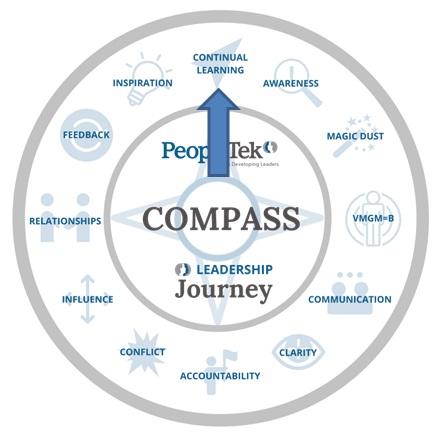Great leaders are almost always great simplifiers, who can cut through argument, debate, and doubt to offer a solution everybody can understand.
—General Colin Powell
Admittedly there are many skills, behaviors, and traits that differentiate the most effective leaders from others, and we wanted to share yet another perspective.
Professors from Harvard Business School’s General Management Unit were asked “what qualities distinguish extraordinary leaders from merely average ones?” Danielle Knox compiled the results and shared the following:
1. They clarify the complex shared John Shad, Professor of Business Ethics
“They can communicate very clearly and succinctly—usually with short words and short sentences—and even on complex issues. They’ve developed the skills necessary to really get to the heart of things.”
2. They embrace new thinking was what Rosabeth Moss Kanter and Ernest Arbuckle Professors of Business Administration provided.
“They resist distilling their work into just one thing! Excellent leaders see nuances, contradictions, possibilities for error, counter-trends, and opposing views. In short, they listen, include many viewpoints, learn from critics, and remain aware that trends could shift quickly. And then they are better armed when they act quickly and decisively.”
3. Chester A. Huber, senior lecturer of business administration and former CEO of OnStar said: They balance confidence and humility
“Great leaders have the ability to act decisively and with confidence to inspire their team while simultaneously displaying a humility that respects and encourages their team’s best efforts. They’re great learners that view successful outcomes as both achieving specific objectives and improving their organization’s ability to deal with its next wave of challenges.”
4. They unite employees around a mission said Joseph B. Fuller, Professor of Management Practice.
“Effective leaders communicate the organization’s objective function—what are we trying to accomplish, what’s the definition of victory, how should we measure our success—constantly and broadly within their institution. That ensures alignment and allows them to delegate responsibility for designing and implementing plans to achieve those ends to the maximum degree possible.”
5. Leonard A. Schlesinger, Baker Foundation Professor selected: They set high standards
“The answer to this question has proven to be relatively timeless in spite of all of the more recent pronouncements. The classic Handbook of Leadership has defined the effective leader as someone ‘who sets high standards and expresses caring.’ Virtually all written since this articulation has proven to be a variation on this theme.”
6. They avoid distractions is what University Professors Rebecca M. Henderson and Natty McArthur provided.
“They focus!”
Of the 6 qualities identified, which do you most identify with? Are there any you’d like to develop?
The leader has to be practical and a realist yet must talk the language of the visionary and the idealist.
—Eric Hoffer


